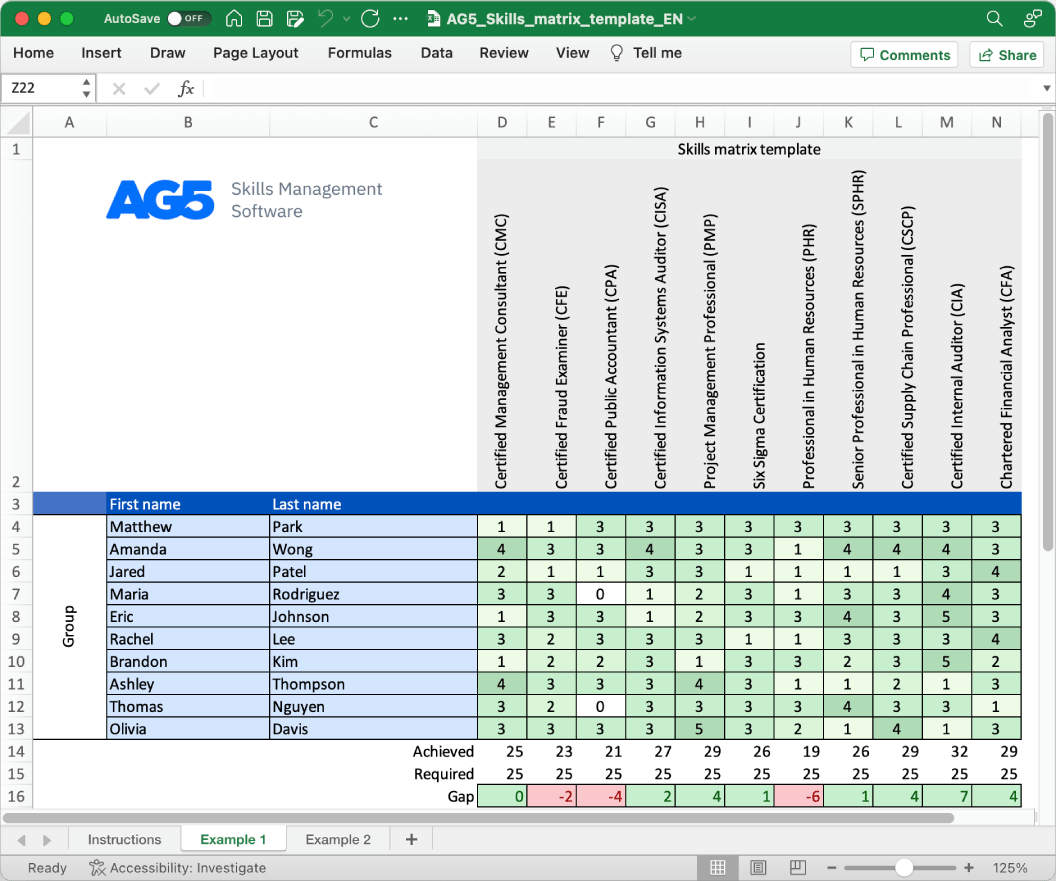Risk assessment skills matrix template
A skills matrix template is a tool teams can use to effectively manage and assess their risk assessment skills and knowledge.
Download your free template here

Overview Copied
With our free risk assessment skills matrix template, you will receive a clear overview of the skills that are present in your organization, as well as those that are missing. Using this information, you can develop and implement a plan to ensure that your employees’ skills are up to date, comprehensive, compliant, and ready for the future.
- Certified Risk Assessment Professional (CRAP)
- Certified Risk Assessor (CRA)
- Certified Risk Analyst (CRA)
- Certified Risk Management Professional (CRMP)
- Certified Risk Manager (CRM)
- Certified Risk Control Specialist (CRCS)
- Certified Risk Mitigation Expert (CRME)
- Certified Risk Assessment Team Leader (CRATL)
- Certified Risk Assessment Consultant (CRAC)
- Certified Risk Assessment Trainer (CRAT)
- Certified Risk Assessment Auditor (CRAu)
- Certified Risk Assessment Documentation Specialist (CRADS)
- Certified Risk Assessment Coordinator (CRAC)
- Certified Risk Assessment Quality Assurance Manager (CRAQAM)
- Certified Risk Assessment Performance Metrics Analyst (CRAPMA)
- Certified Risk Assessment Process Engineer (CRAPE)
- Certified Risk Assessment Regulatory Affairs Specialist (CRARAS)
- Certified Risk Assessment Change Control Specialist (CRACCS)
- Certified Risk Assessment System Administrator (CRASA)
- Certified Risk Assessment Compliance Specialist (CRACS)
Benefits Copied
Skills management software is important in risk assessment as it enables organizations to identify and manage the skills of personnel involved in assessing and mitigating risks, ensuring they possess the required expertise to effectively identify, analyze, and address potential risks to product quality, patient safety, and regulatory compliance.
Author Copied
Revisions Copied
Tired of managing skills in Excel?
Say goodbye to Excel matrices. Start using AG5’s plug and play skill matrix software.
Recognized by G2 for Excellence in Skills Management

